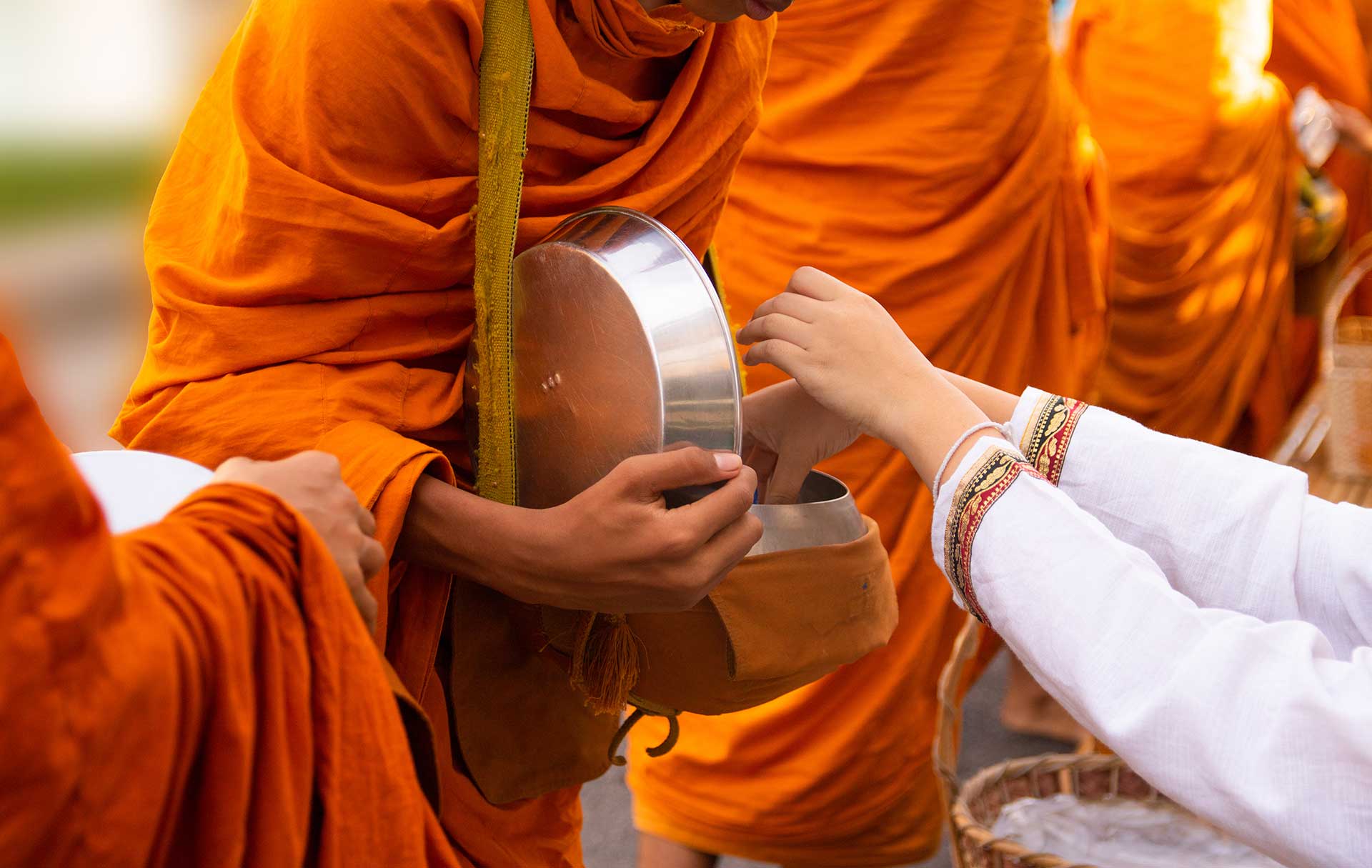A Traveller’s Guide to Luang Prabang’s Sacred Buddhist Ritual
We may earn a commission from purchases made through some affiliate links on this website
At sunrise, Luang Prabang feels as if it belongs to another time. The streets, lined with centuries-old temples and colonial villas, slowly stir to life beneath a veil of mist. But it’s not the quiet streets or the first golden rays touching temple rooftops that make this dawn so special. Rather, it’s a quiet tradition, silently observed each morning, that has become synonymous with the city’s spiritual heartbeat: the monks’ alms-giving ceremony, or Tak Bat.

This daily ritual, which has unfolded here in almost uninterrupted continuity for centuries, sees hundreds of saffron-clad monks walking barefoot through the town’s streets, silently receiving offerings of sticky rice and fruit from locals. More than just a photographic moment or a tourist spectacle, it’s a real glimpse into Laos’ Buddhist soul.
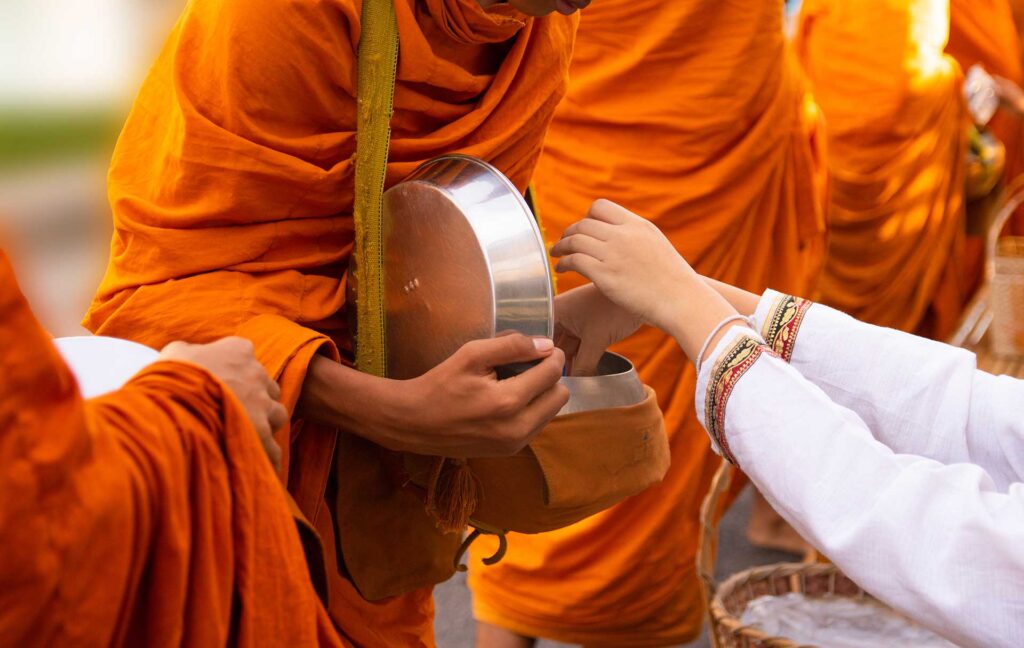
What are alms?
Tak Bat, in its simplest form, is the daily practice in which Buddhist monks leave their temples at dawn to receive food (alms) from the local community. Rooted deeply in Theravada Buddhist philosophy, the tradition symbolises humility and mutual dependence between the monastic community and laypeople. The monks rely entirely upon the daily generosity of the community for their sustenance, while locals believe offering alms grants spiritual merit, paving the way toward enlightenment.
In Luang Prabang, this tradition is not merely ceremonial – it remains an integral part of everyday life. Monks of all ages, from wizened elders to novices as young as ten years old, silently traverse the town, holding simple alms bowls into which offerings of sticky rice, fruit, and other items are gently placed. The atmosphere is serene, deeply respectful, and infused with spiritual significance.
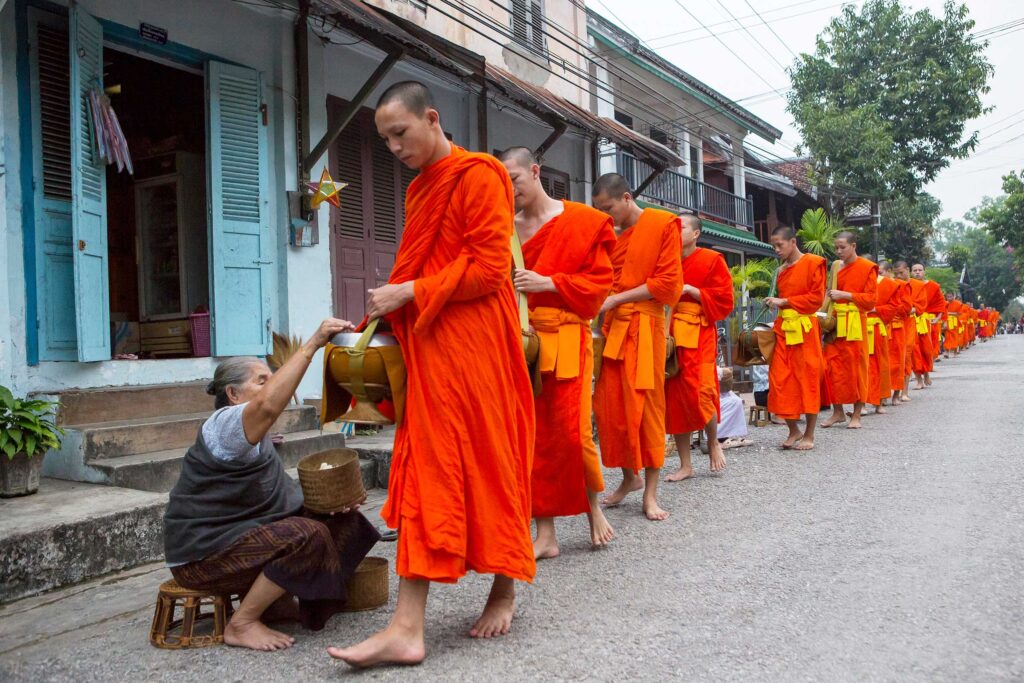
How to Witness the Ceremony Respectfully
The alms-giving ceremony in Luang Prabang attracts visitors from all corners of the globe. With increased tourism, however, the delicate balance of this ritual faces disruption. To help preserve its authenticity and integrity, here are our tips:
Dress Modestly
When attending the alms-giving ceremony, dress appropriately. Cover shoulders and knees as a sign of respect as you would as if you were entering a temple.
Arrive Before Sunrise
Aim to reach the location around 5:30 AM, just before dawn breaks. Not only will this give you ample time to settle quietly, but it also allows you to witness the breathtaking sight of monks emerging from temples as the sky gently brightens.

Maintain a Respectful Distance
Stand or sit quietly, at least several feet from the monks’ procession. Never obstruct their path or cross in front of them. Observing from a respectful distance preserves the sanctity of their meditation. You might see some visitors trying to get a photograph just inches from the monks’ faces. Don’t be that person!
Avoid Using Flash Photography
Photography is allowed, but flash photography is disrespectful and obtrusive to the monks and those around you. Take your photos discreetly and sensitively from afar, without disturbing the monks or those offering alms.
Silence Your Devices
The alms-giving ceremony occurs in serene silence, a time when both monks and locals meditate inwardly. Turn off your phone or put it on silent, and refrain from talking during the ceremony. You’ll be amazed at how quiet the streets are as the procession takes place.
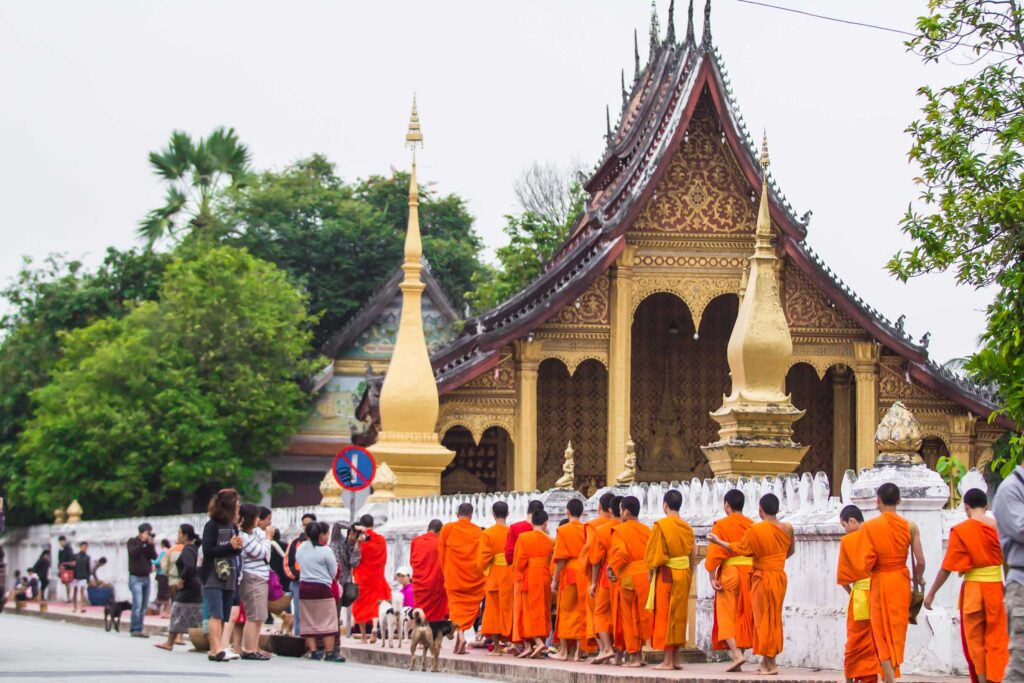
Participating in Tak Bat: Offering Alms Yourself
As a visitor, you have a unique privilege of actively participating in the ceremony by giving alms yourself.
Buying Your Offerings
Purchase your offerings, usually sticky rice or fresh fruit, from local markets early in the morning. Many stalls often sell portions specifically prepared for the ceremony. Some guesthouses and hotels provide offerings to allow you to participate!
Where & How to Offer Alms
You’ll see locals forming lines down the streets near the temples. Join one of these lines and wait for the monks to walk past you. When giving alms, kneel or sit quietly, removing your shoes and keeping your head lower than the monks as they pass. Offer the rice or fruit gently, without touching the monks or their alms bowls directly. Quietness and humility define this moment and are deeply important to the occasion.
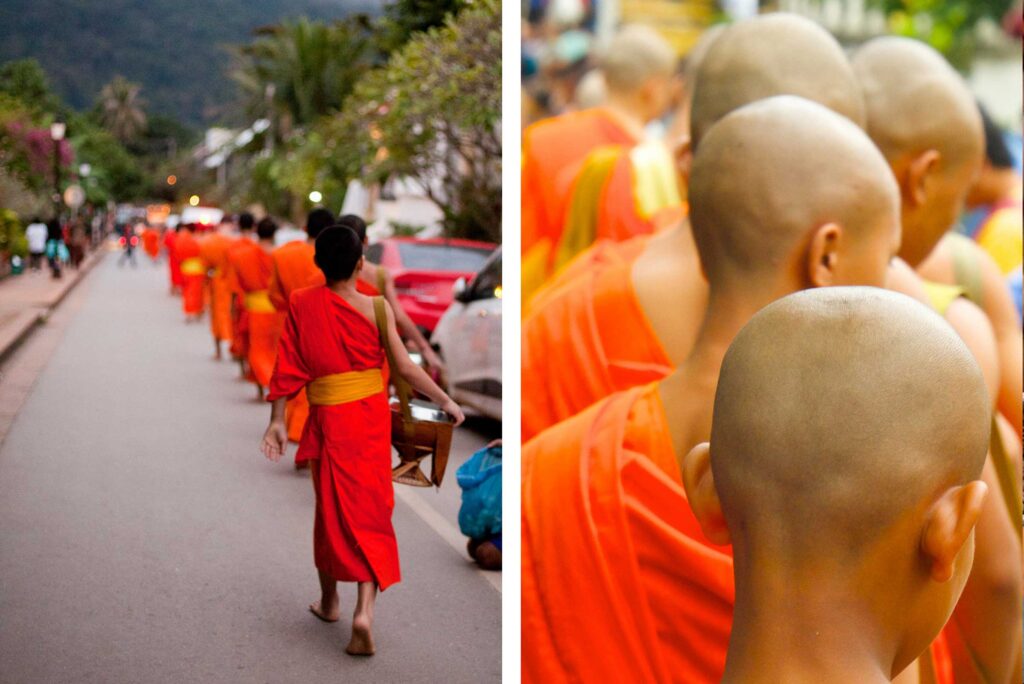
Where to Experience Tak Bat in Luang Prabang
Luang Prabang’s main street, Sisavangvong Road, and the quieter side streets near Wat Xieng Thong are popular spots to witness the ceremony. For a spot with fewer crowds, head to quieter residential streets near temples such as Wat Mai or Wat Sensoukharam, where fewer tourists gather.
What to do After Tak Bat
Experiencing the alms-giving ceremony might spark a deeper curiosity about Lao Buddhism and local traditions. If you haven’t already, head to the most iconic temple in Luang Prabang, Wat Xieng Thong, to see monks going about their daily activities such as cleaning the temple grounds or chanting softly in prayer. You can also dive deeper into Laos’ cultural heritage at the Traditional Arts & Ethnology Centre.
Editor’s Side Note
The popularity of the monks’ alms-giving ceremony raises understandable concerns among locals and cultural preservationists. Increased tourism risks turning the ceremony into a spectacle, diluting its spiritual integrity. As a visitor, your behaviour plays a pivotal role in protecting this tradition. Be respectful and unobtrusive, and you’ll find this one of the most beautiful experiences in Southeast Asia. Not just a sightseeing event, this is a chance to participate in a living tradition – something getting rarer in todays’ modernised world.

